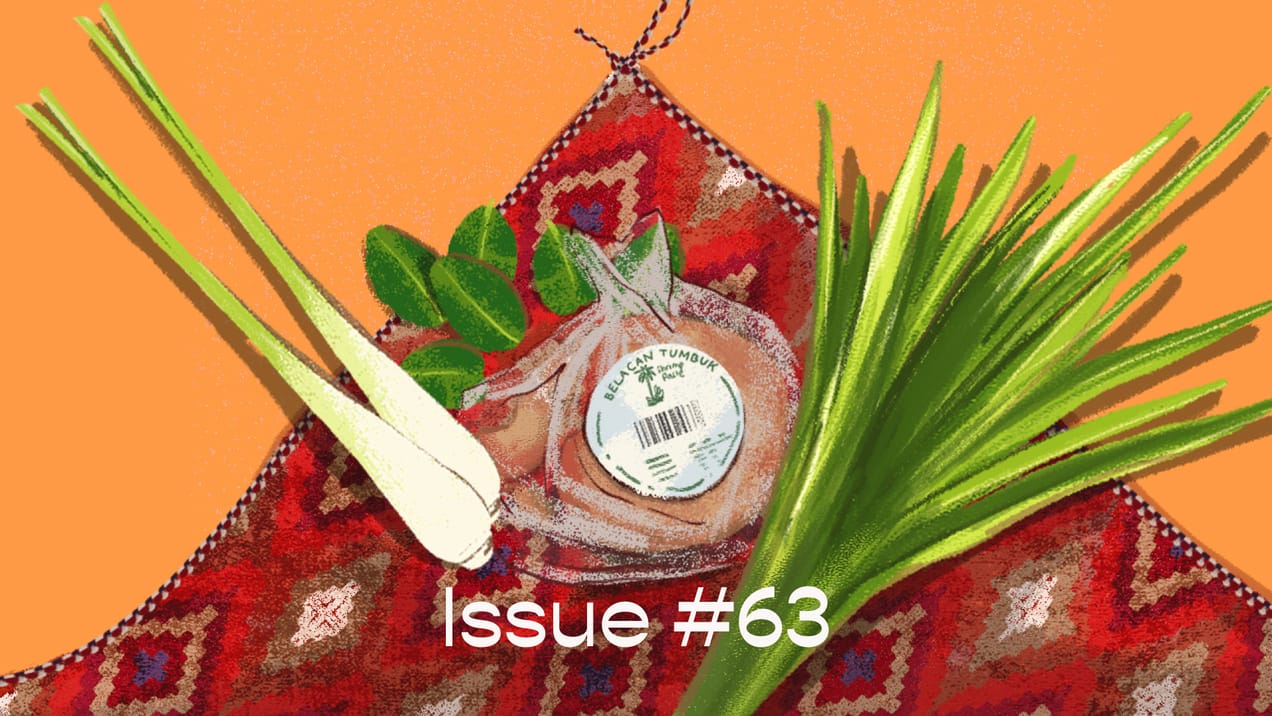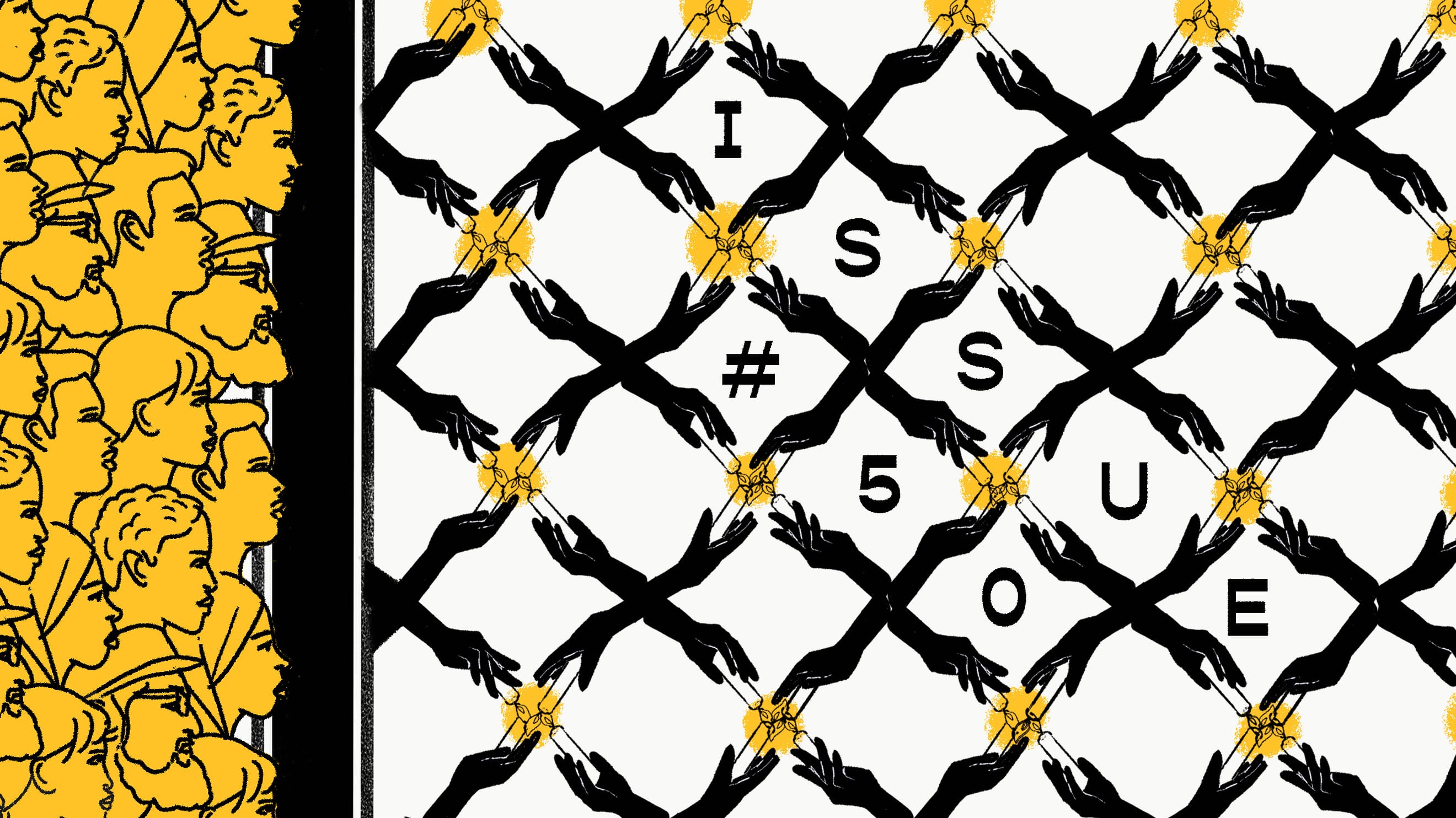
Boycotts: A call for connection — issue #50
Recent calls to boycott have got me thinking about how intricately connected we are to each other.
Each day, I depend on my iPhone to get updates on what goes on in the world, and communicate with family and friends miles away. With digital media, I have easy access to the stories, arts, and culture of people from across the globe.

In our globalised, capitalist world, it is hard not to participate in someone else’s suffering. I am only able to stay connected because someone dug the minerals needed to produce my phone, and someone else earned a meagre wage from putting it together in a factory.
For those of us in wealthier countries, many of which are in the Global North, what we buy, wear, and eat often comes at the expense of others in the Global South. This imbalance weighs heavily on me sometimes, yet I’ve also struggled with using my money more mindfully.

The sheer violence of the genocide in Gaza, however, has forced me to confront the realities of my spending power. Just as I can’t bear to see another child under the rubble, I can’t stand to eat a Big Mac knowing that my money will go to a company complicit in Israel’s genocide in Gaza.
Israel’s war on Palestinians is bringing much dirty business to light. The majority of the most popular consumer goods brands in Asia, for instance, is owned and backed by parties that enable military violence.
Most of Asia's top brands are owned and backed by Western multinationals and banks.

The brands we love share the same shareholders as arms companies: Lockheed Martin, RTX (formerly Raytheon), Northrop Grumman, Boeing and General Dynamics. These American companies have long sold weapons to Israel, supplying bombs, fighter jets, and missile ships in previous and the ongoing assaults on Gaza. In 2022 alone, they generated US$196 billion in military-related revenue.
This is not new. Big corporations have historically had close relationships with the militaries of old imperial states like the United Kingdom and the United States, which together make up a neocolonial power with significant economic and cultural influence over the world. These same actors have sought to quell dissent and disrupt politics in their ex-colonies to maintain political influence.
You might be thinking: I am only one person. How will I make a difference, when these powerful companies are so entrenched in the global system?
I often feel helpless too. But then I think of South Africa, and how a global boycott helped to bring apartheid to an end. Its success inspired the Palestinian-led Boycott, Divestment and Sanctions movement, which aims to end international support for Israel's oppression of Palestinians and put economic pressure on Israel.
🇿🇦 South Africa anti-apartheid timeline
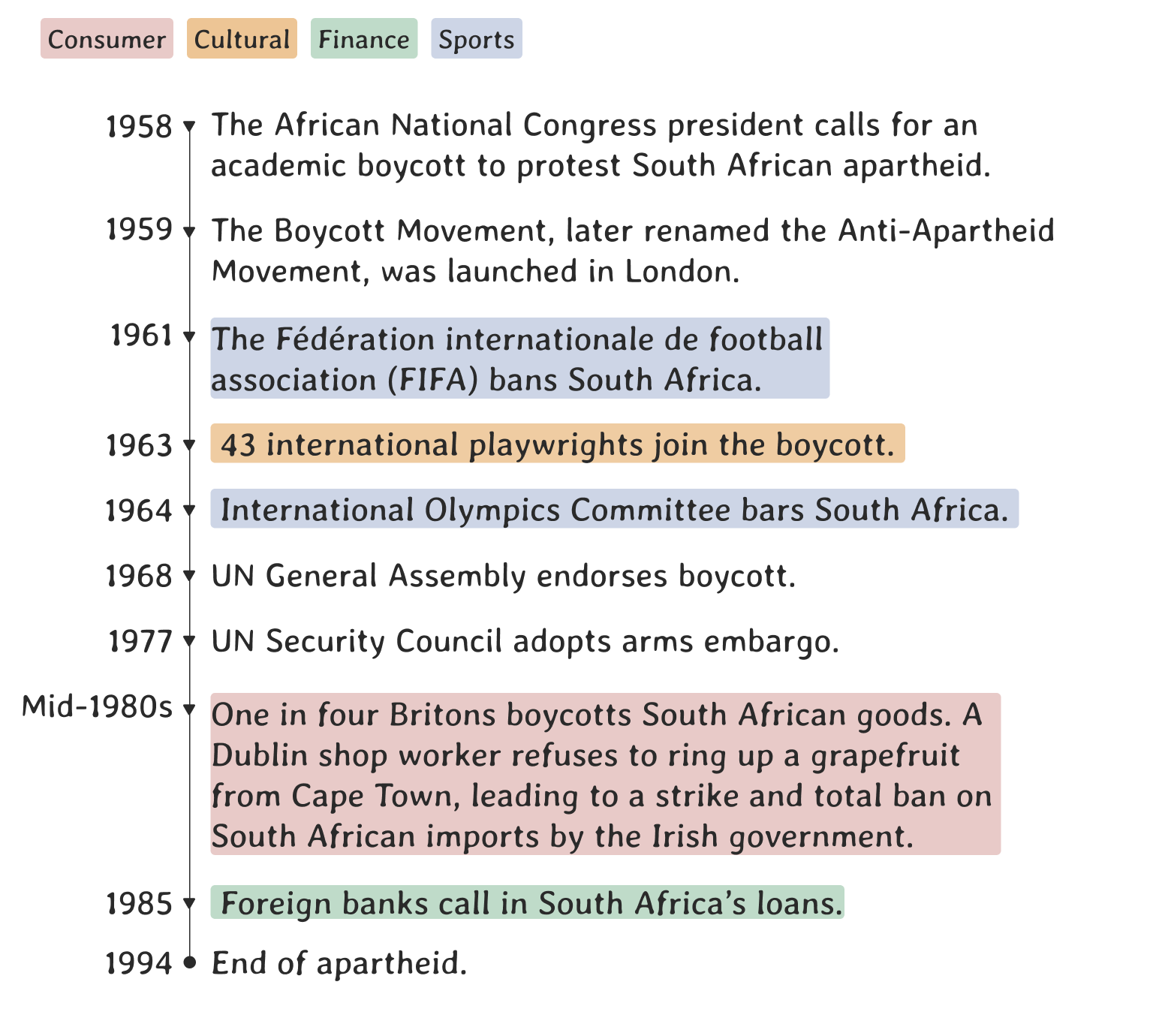
The BDS movement harnesses people power to hold Israel to account and pave the way towards a just peace based on freedom, justice and equality. It targets companies that play a direct role in Israeli apartheid, including Carrefour, Siemens and Puma. BDS also puts pressure on companies that operate on the illegally occupied Palestinian territories, such as Airbnb and Booking.com, to end their complicity in the occupation.
🇵🇸 Palestine Boycott, Divestment, Sanctions timeline

Even when a boycott doesn’t directly force a company to change, it can diminish its legitimacy in the eyes of the public. Take Starbucks, for example. After the company sued its union for expressing solidarity with Palestine, social media users were quick to call it out. Observers attribute the company’s US$11 billion loss in market value to the global boycott that emerged because of its actions.
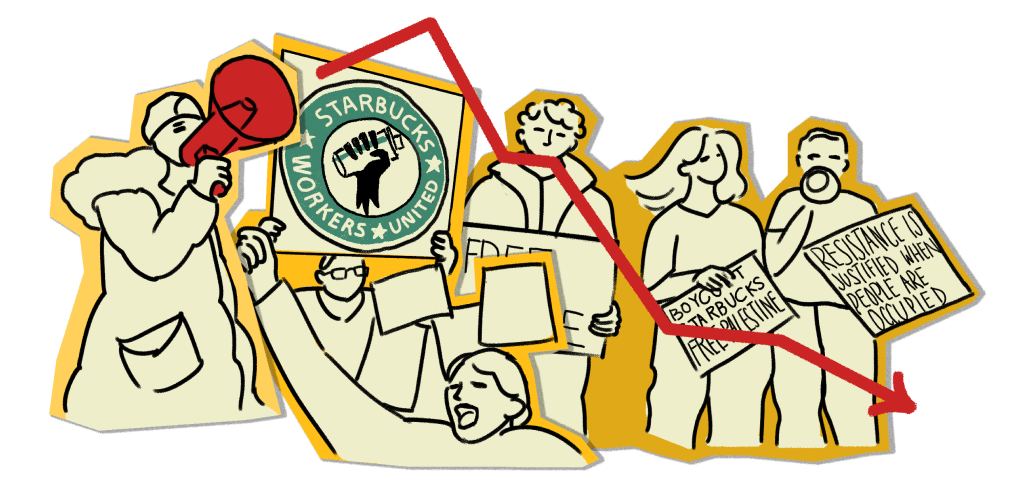
Boycotts might appear to some as a trend, or to others a radical act. But research shows that values and beliefs influence what people buy, and increasingly so. According to a 2018 study by marketing consultancy Edelman, 64% of consumers around the world would boycott a company solely because of its position on a social or political issue.
For the Kontinentalist team, the boycott movement has ignited a deeper appreciation for local businesses. Where we once headed to Starbucks to get its yearly Christmas specials, we’re now wholly committed to Generation Coffee, a local coffee roaster located at our nearby hawker centre.
Other than contributing to the local economy, supporting homegrown businesses puts us in a direct relationship with the people who produce the things we depend on. Going local is also cheaper and just more enjoyable.
What coffee can we get with the price of 1 regular Starbucks coffee in Singapore?
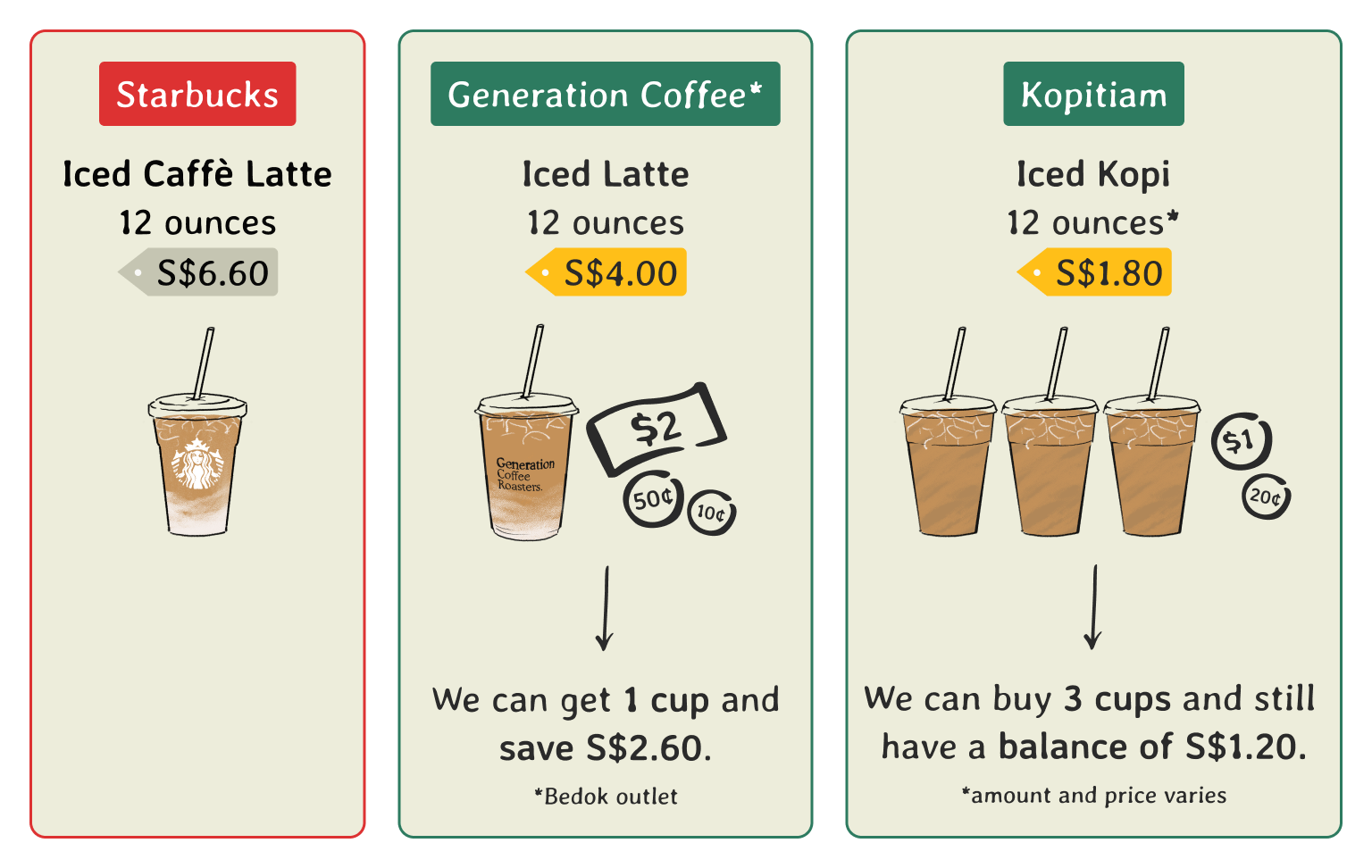
In the face of government inaction and moral hypocrisy, it is easy for us to feel despair. Boycotting big brands and buying local is my way of resisting the new face of colonialism. A corporate sort that permits war for profit, and legitimises the suffering of countless innocent lives.
It is also one of the few things I can lend to a dispossessed people experiencing extreme injustice—my solidarity.
For further resources, check these links out:
On Boycott, Divestment, Sanctions:
- The official BDS website.
- “Growth of a movement” by Visualizing Palestine.
Links and apps to help you on your boycott journey:
- The bdnaash platform allows consumers to search for or scan products that support the illegal occupation of Palestine.
- Ethical Consumer is a comprehensive guide to conscious shopping.
- The No Thanks Google play app helps consumers check which products are included in the boycott movement.
- Who Profits is a independent research centre dedicated to exposing the role of the private sector in the Israeli occupation economy.



